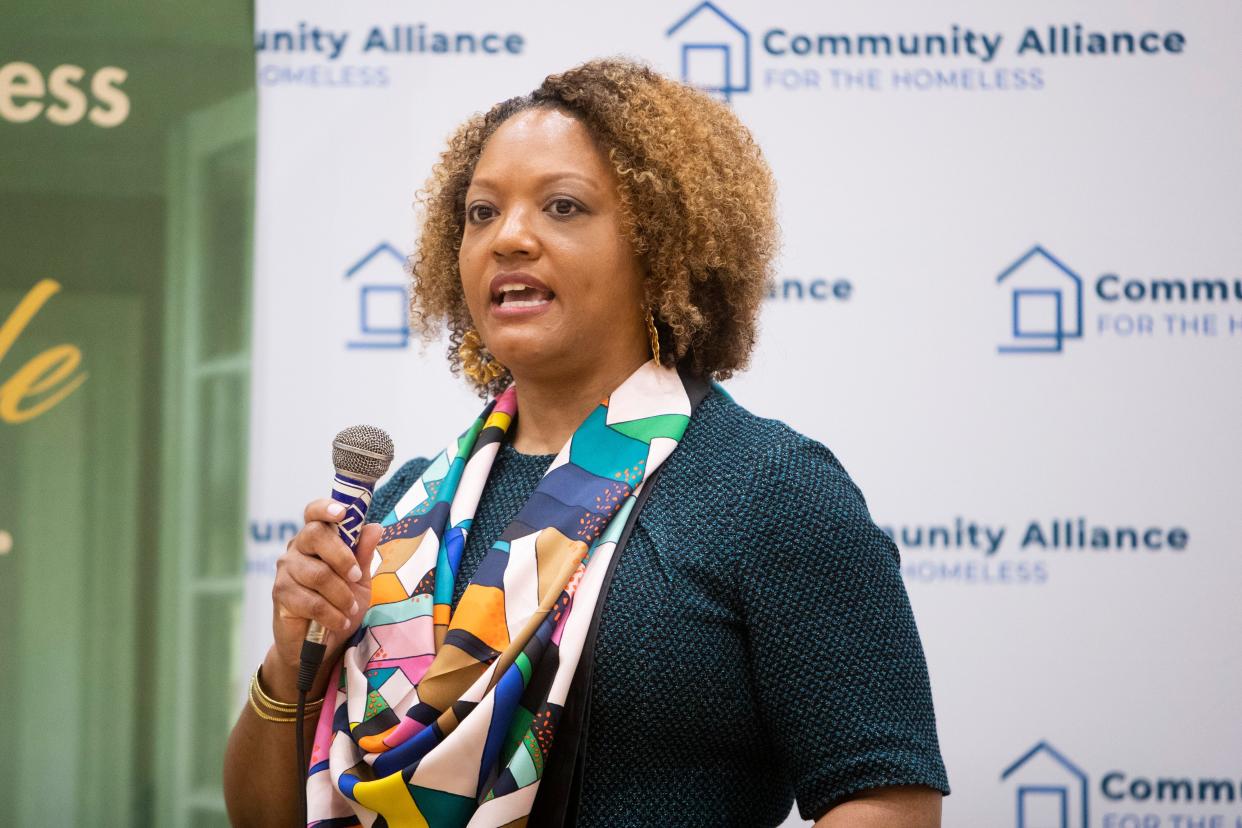Forty years ago, AIDS was a death sentence. Not today, but HIV is still a health threat
It’s not shocking or even surprising that HIV and AIDS are on the rise in today’s world. The dreaded disease of the 1980s and 1990s is now affecting young people who were not even born when HIV first surfaced and terrorized the country and the world.
That reality also makes it important that young people and everyone else be aware of the health menace and look out for themselves and for others.
HIV (human immunodeficiency virus) attacks the body’s immune system. According to the CDC, if you do not get treatment, HIV can lead to AIDS (acquired immunodeficiency syndrome). Back in the 1980s, people infected with HIV expected to die. There was no cure then, no vaccines and few treatments.
Acts of aggression dampen the world, but simple displays of kindness make a difference
Do not let shame be a reason not to get tested
Today, there still is no cure, but now there are medications and treatments that can control the virus. Those who get the effective treatments can live long, healthy lives and protect their partners.

The catch is that the only way to know that you have HIV is to get tested. If you test positive, then get the appropriate treatment. There is no reason to allow shame and embarrassment to prevent you from getting the care you need.
What is concerning is that Shelby County recently has seen an alarming increase in newly diagnosed cases of HIV in our community.
In fact, I recently read that if you live in Shelby County, you are more likely to contract HIV than nearly anywhere else in the country. The Memphis region ranks second for new HIV infections in the U.S., according to the Shelby County Health Department. And African Americans are getting the disease at a higher rate than anyone else.
According to the SCHD, this HIV increase impacts people of all ages, but the incidence is highest among young people between the ages of 14 and 35.
Yes, 14-year-old children are impacted by the virus. That is startling!
Medications help suppress HIV
In 2021, almost 19,000 people in Tennessee were living with HIV. According to the National Library of Medicine, Mississippi has the highest rates for new infection, the most AIDS deaths and the greatest number of people living with HIV/AIDS.

Executives with the Tennessee Department of Health say that Shelby County is experiencing a peak in a six-year trend of increasing HIV infections. TDH estimates show that HIV rates have increased 36% in Shelby County since 2018. Among those 15 to 19 years old, HIV rates increased 40%.
In a press release last month, Dr. Michelle Taylor, the Shelby County Health Department director-health officer, said, “HIV can be successfully suppressed with medications, allowing HIV-positive persons to live long and healthy lives.”
Dr. Taylor added that HIV treatment and related supportive care are available at no cost to patients.
The key is to get tested so you can get the help that you need to live. The Shelby County Health Department, says Dr. Taylor, has greatly improved access to testing at its clinics, enhanced communication and expanded outreach efforts through community partners. She also emphasizes that all residents of Shelby County should be aware of their health status.
“I highly recommend testing for all sexually active individuals so they can be aware of their status and take steps to protect themselves and their partners,” she says.
How HIV is contracted and how to prevent or treat it
After contact with the virus, symptoms may show up weeks, months or years later. Among the symptoms are unexplained weight loss and tiredness, flu-like feelings that linger, and white spots in the mouth/mouth ulcers, rash and muscle aches. Some people have no symptoms at all.
And let’s be clear: HIV is spread during sex (vaginal, anal or oral) with someone who has HIV. It also is spread by sharing needles and through contact with infected blood.
Consequently, it is important that you get tested and know your status. According to the Centers for Disease Control and Prevention, if your test result is positive, you can take medicine to treat HIV to help you live a long, healthy life and protect others. There are treatments that require just one pill a day, and in development are treatments that would require a pill or a shot every few months.
If your test result is negative, there are things you can do to make sure you don’t get HIV. One is using a condom every time you have sex. In a Feb. 27 New York Times story, a study showed that gay and bisexual men are using condoms less than ever. The researcher said this “worrisome trend” points to an urgent need for better prevention strategies as “the nation struggles to beat the HIV epidemic.”
In 2012, the prevention medication pre-exposure prophylaxis (PrEP) was introduced to help susceptible individuals protect themselves from contracting HIV from sex or injection drug use. When taken daily, antiretroviral drugs almost eliminate the risk of contracting HIV. Consequently, many gay men stopped using condoms. That was a mistake.
There is also medication to prevent HIV after a possible exposure. It must be started within 72 hours of possible exposure.
Free access to HIV-AIDS treatment exists in the U.S.
In 2022, about 39 million people globally were living with HIV and about 29.8 million of them were receiving antiretroviral therapy.
That year about 650,000 people died from HIV-related illnesses, and about 1.3 million people became newly infected with the virus.
Here in the U.S., and in Shelby County in particular, we are fortunate to have easy access to free testing and medications to prevent and combat HIV-AIDS.
Do the right thing and get tested so you know your status. Take medication to prevent and treat the virus if necessary and make safe sex a part of your life.

HIV is not a death sentence if you take the right steps.
Lynn Norment, a columnist for The Commercial Appeal, is a former editor for Ebony Magazine.
This article originally appeared on Nashville Tennessean: HIV-AIDS: Virus is no longer a death sentence but still health threat




